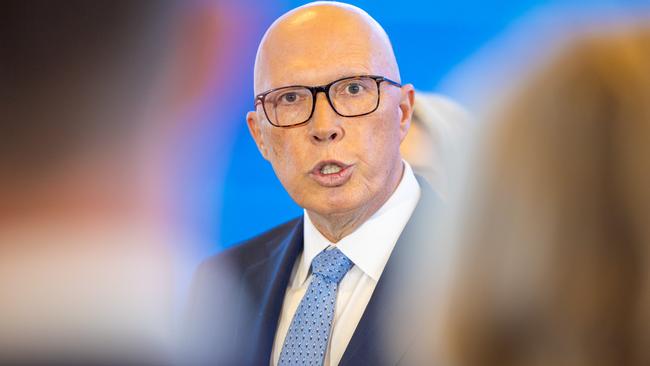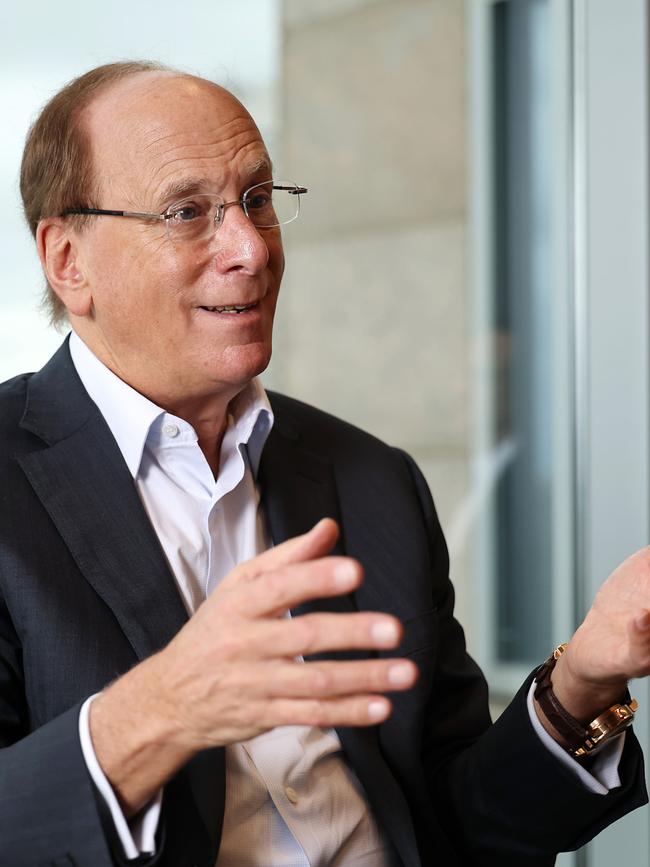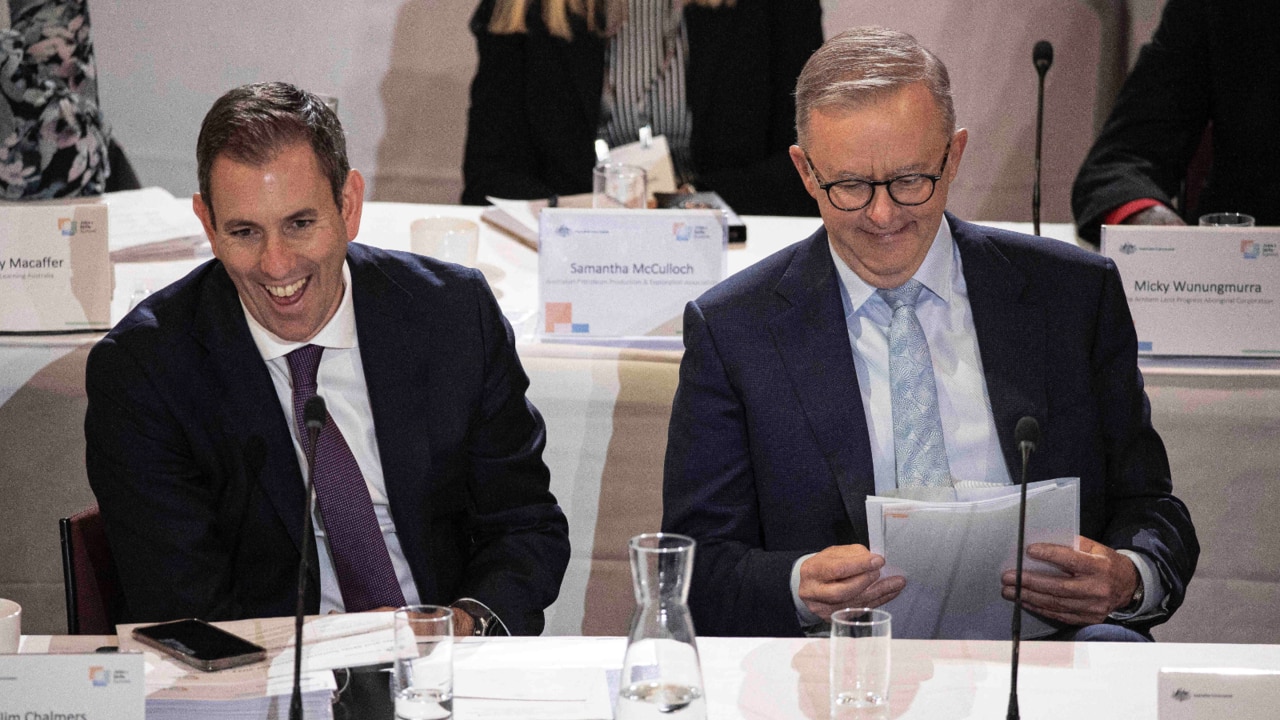
An election campaign is the perfect time to revisit what we do about two powerful forces that have effectively purchased immunity from normal legal and governance rules by making direct or indirect donations to the ALP.
One is the CFMEU. Opposition Leader Peter Dutton has promised to deal with this rogue union by deregistering it.
The other group that needs to be defanged is industry super funds. Alas, neither party is proposing to do much about them, despite ASIC chairman Joe Longo characterising them as “the current poster child for what can and does go wrong when governance fails”.
The ALP will never do anything to rein in industry super funds for two reasons. One is, of course, the money. Industry super funds transfer huge sums of money to unions, sometimes disguised as directors’ fees, but through other paths, too, and in turn unions fund the ALP. The second is that the industry funds use their ESG investing positions to prosecute ALP policy under the camouflage of good business practice.

If Dutton wins the May election, he can and should defang these funds. It is no longer tenable for them to use industrial structures, benefits and exemptions conferred on them when they were simple adjuncts to industrial awards. They are now large public offer financial institutions – many of whose members are not union members.
The tide is turning in favour of Dutton acting. It’s already clear that, while directors of industry super funds could previously acquire de facto immunity from litigation simply by claiming, without evidence, that their ESG policies were in the best financial interests of members, this is no longer true.
That cat was belled in January this year by a landmark US case involving the darling of ESG investing, Larry Fink, the co-founder and CEO of BlackRock. While Fink may say he abandoned ESG investing to escape the weaponisation of the term, his conversion on the road to financial Damascus was made final by the decision in Spence v American Airlines. There, Judge Reed O’Connor of a US District Court in Texas held that pension fund trustees breached their fiduciary duties in relying on BlackRock to invest using ESG objectives.
O’Connor’s judgment is a must-read for super fund trustees, and indeed for any ESG devotee. O’Connor defined ESG as an investment strategy that “is aimed at, in whole or in part, bringing about certain types of societal change” and describes it as pursuing “a non-pecuniary interest as an end itself rather than as a means to some financial end”.
The judge was alert to the old ESG ruse of claiming that considering ESG factors has some financial benefit. As he said, “simply describing an ESG consideration as a material financial consideration is not enough. There must be a sound basis for characterising something as a financial benefit. Otherwise, anything could qualify as a financial interest and serve as pretext for non-pecuniary interests.”

O’Connor took his own advice and demanded expert evidence of the financial benefits of ESG investing. He found “by focusing on non-pecuniary interests, ESG investments often underperform traditional investments by approximately 10 per cent. For instance, when compared to the S&P 500 and the Russell indices in 2023, ESG funds dramatically underperformed non-ESG funds, with ESG-related funds returning about 8 per cent compared to about 14 per cent for both indices.”
While Australian laws governing the duties of super-fund trustees are couched in different language to US laws, Australian fiduciary duties are every bit as stringent.
Section 52(2)(c) of the Superannuation Industry (Supervision) Act requires trustees to act in the “best financial interests” of super-fund members. Not in the interests of their immortal soul, or the interests of the environment or the country.
In an important speech on the topic “Superannuation Trustees’ Duty to Make Money for their Beneficiaries” in Canberra last week, Justice Ian Jackman of the Federal Court pointed out that it was not enough for trustees to have good intentions.
He quoted the legendary line in 1883 by Lord Justice Bowen in Hutton v West Cork Railway that bona fides “cannot be the sole test, otherwise you might have a lunatic conducting the affairs of the company, and paying away its money with both hands in a manner perfectly bona fide yet perfectly irrational”.
Jackman suggested that when large public offer super funds exclude investments in, say, thermal coal producers, those exclusions could be open to challenge if “the reason for those exclusions is based on the social or political views of the trustees irrespective of the financial interests of the beneficiaries”.

Though Jackman was too discreet to point to specific examples, we might wonder how UniSuper justifies excluding thermal coal producers from its funds when the share price of Whitehaven Coal is up 179 per cent, and Yancoal 145 per cent, each in the past five years. Class action against the directors of UniSuper anyone? Indeed, while large industry super funds have, for years, been protected from examination by their status as major indirect funders of the ALP, their halo is rapidly slipping.
Longo’s comments about governance failures at super funds followed revelations AustralianSuper has had its own equivalent of AMP’s charging-dead-people-fees scandal. The Australian Securities & Investments Commission is suing AustralianSuper, alleging its board and CEO knew for years that the fund was not paying death benefits to the families of deceased members quickly enough and did not move appropriately to fix the problem.
Such is the astonishing level of chutzpah and entitlement at industry super funds that Mary Delahunty, head of the Association of Superannuation Funds of Australia, complained about ASIC suing AustralianSuper, saying it should use other tools to regulate the industry such as enforceable undertakings.
Meanwhile, the Australian Prudential Regulation Authority is proposing a dramatic overhaul of the rules governing tenure, skills and competence of directors of super funds.
However, both regulators have squibbed the central problem of industry super fund governance, which is that trustees of these funds are owned 50/50 by unions and industry employer associations and neither the trustees nor their directors can be removed by members of the funds.

That’s right – no matter how corrupt or incompetent the trustee is, members of the funds don’t get to vote and cannot remove the trustee of the fund, or any of its directors.
This “equal representation” model may have made sense when the only members of industry super funds were members of a sponsoring union or unions. As union members, at least these people could vote at union elections and impose some accountability over the union-appointed directors.
That was back in the horse and buggy days of superannuation. Big industry funds have long stopped consisting solely of union members. Many of them are huge open offer funds that any member of the public can join. These funds have become giant pillars of the financial system, with enormous power, but with no accountability to the beneficiaries whose money they manage.
Dutton should be modernising super funds to get rid of the 50/50 structure and to ensure that all members of open offer super funds are given rights to appoint, elect and supervise the trustees of the funds who manage their money. Then the trustees might start treating member money with the same care as they treat their own – and skip their ESG obsessions and payments to unions.





